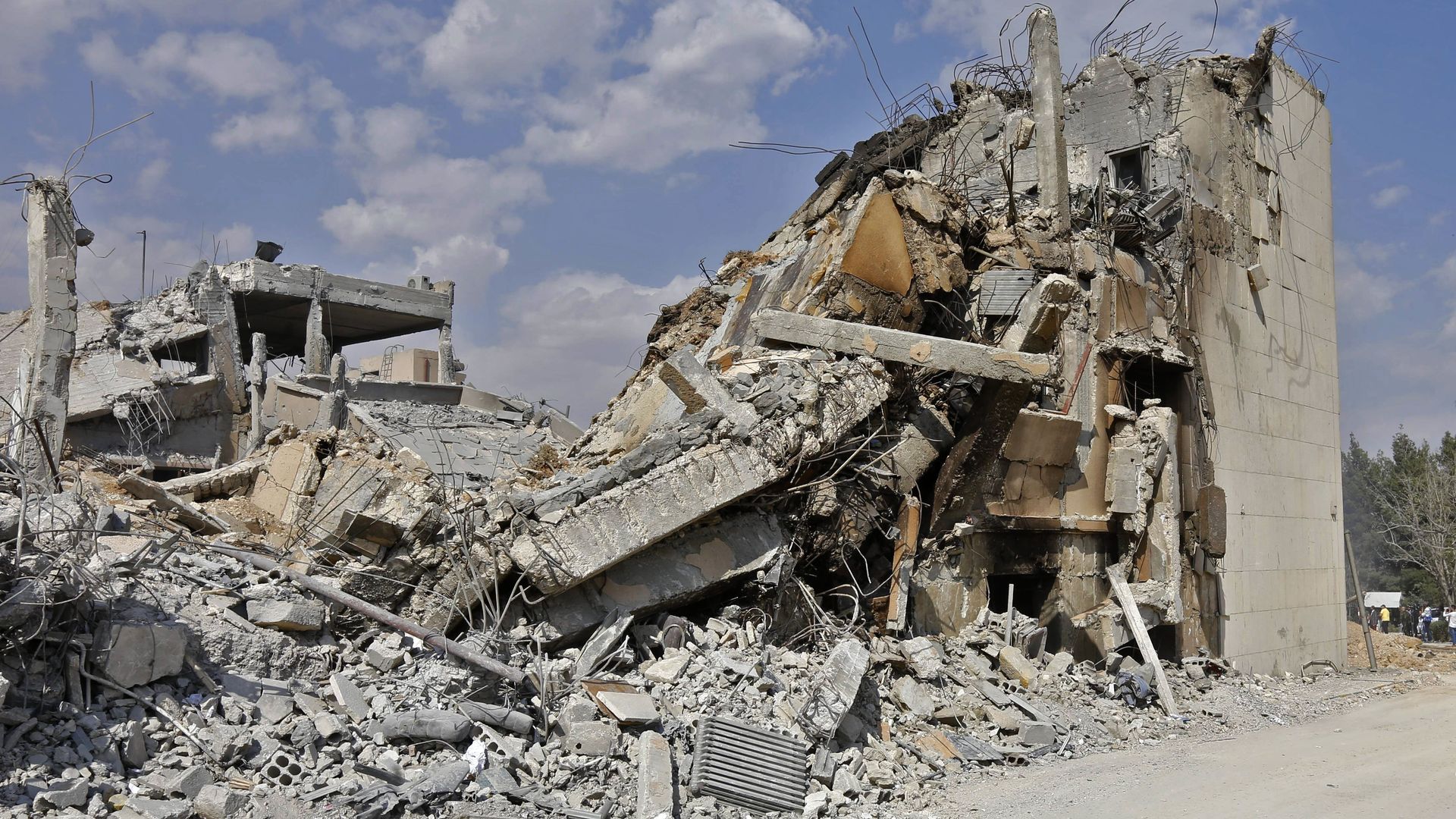Updated Apr 15, 2018
Expert VoicesAfter Syria strikes, time to renew diplomacy
Add Axios as your preferred source to
see more of our stories on Google.

Wreckage of the Scientific Studies and Research Centre (SSRC) compound north of Damascus, a target of the missile strikes. Photo: Louai Beshara/AFP/Getty Images
